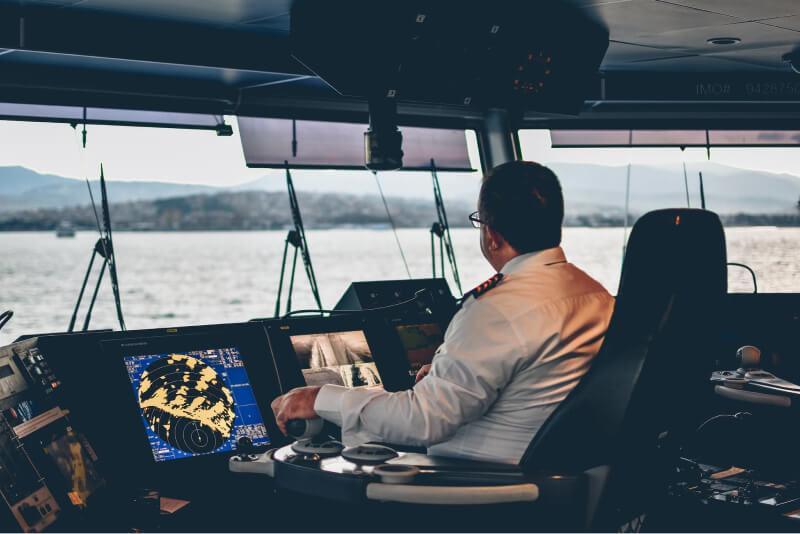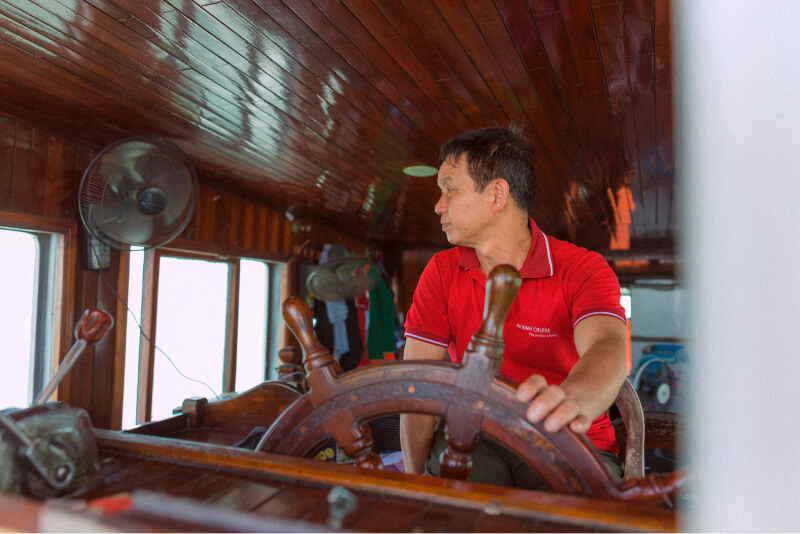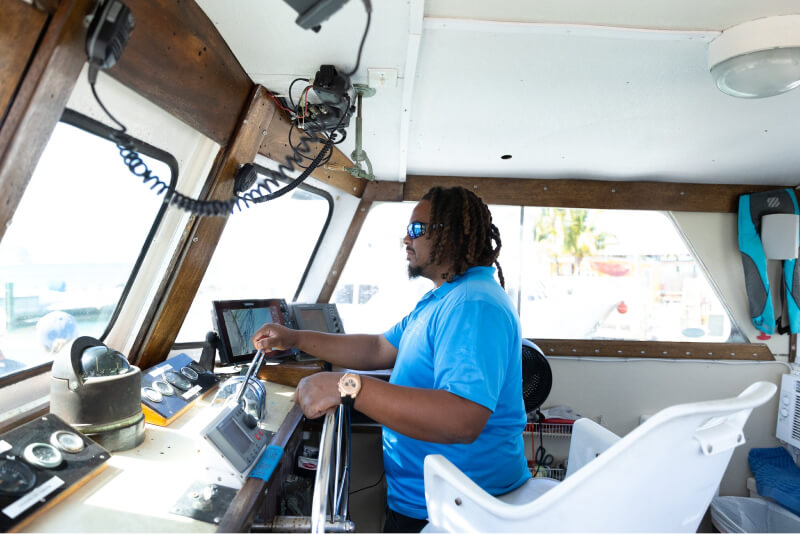Are you considering becoming a boat captain? If so, you may be wondering about the different types of boat captain licenses that are available. Whether you’re interested in recreational boating or pursuing a career on the water, understanding the various license options is crucial. In this article, we’ll explore the different types of boat captain license and what they entail.
One common type of boat captain license is the Operator of Uninspected Passenger Vessels (OUPV) license, also known as a six-pack license. This license allows you to operate smaller vessels carrying up to six paying passengers in nearshore waters. It’s a popular choice for charter captains and those looking to offer guided tours or fishing trips.
If you’re interested in working as a commercial boat captain, you may need to obtain a Merchant Mariner Credential (MMC). The MMC is issued by the United States Coast Guard and enables individuals to work on larger vessels, such as ferries, cruise ships, or cargo ships. Depending on your desired role and vessel size, there are different levels of MMCs available.
For those seeking adventure on the high seas, an Offshore Captain License may be worth considering. This type of license allows you to navigate larger vessels further offshore and can open up opportunities for jobs in international waters or long-distance cruising.
Whatever your aspirations may be as a boat captain, understanding the different types of licenses available will help guide your journey. From small charters to commercial shipping operations, each license has its own set of requirements and responsibilities. So take some time to research which license aligns with your goals before setting sail towards your dream career at sea.
Different Types of Boat Captain Licenses

If you’re considering a career as a boat captain, it’s important to understand the different types of licenses that are available. Each license has specific requirements and allows you to operate different types of vessels in various locations. Here, we’ll explore some common types of boat captain licenses:
Operator of Uninspected Passenger Vessels (OUPV)
Also known as a six-pack license, this is the most basic type of captain’s license. It allows you to operate uninspected vessels that carry up to six passengers for hire. OUPV licenses are popular among charter fishing captains and small tour operators.
Master License
A step above the OUPV license, the master license grants you more authority and enables you to operate inspected vessels carrying more than six passengers. This type of license is required for captains working on larger passenger ferries or cruise ships.
Towing Endorsement
If your goal is to work in the towing industry, obtaining a towing endorsement along with your captain’s license is essential. With this endorsement, you can safely tow other vessels and provide assistance during emergencies.
Sailing Endorsement
For those who love sailing and want to share their passion with others, a sailing endorsement allows you to captain sailboats professionally. This endorsement requires additional training and demonstrates your proficiency in handling sail-powered vessels.
Inland Waters vs Coastal Waters
Depending on where you plan to work as a boat captain, there may be different licensing requirements for inland waters (lakes, rivers) versus coastal waters (oceans). Make sure to check if there are any specific certifications needed for the area where you intend to operate.
Obtaining a boat captain’s license involves meeting certain criteria such as age requirements, sea time experience, passing written exams on navigation rules and safety regulations, and undergoing physical examinations. The specific requirements may vary depending on the type of license and the country or state you are in.
It’s worth noting that these licenses serve as a foundation, and there are additional endorsements and certifications available for specialized roles such as dive boat operations, commercial fishing, or yacht chartering.
Before embarking on your journey to becoming a boat captain, thoroughly research the licensing requirements in your desired field and location. It’s vital to ensure that you meet all the necessary qualifications before pursuing your dream career on the water.
Read Also: Types of Boat Covers: Protect Your Vessel with the Right Choice
Requirements for Obtaining a Boat Captain License

Obtaining a boat captain license requires meeting certain requirements and undergoing specific training. Whether you’re interested in operating commercial vessels or enjoying recreational boating, here are the key steps to obtain a boat captain license:
Age Requirements
You must meet the minimum age requirement set by your country or state to apply for a boat captain license. Typically, this ranges from 18 to 21 years old.
Boating Experience
Prior experience in boating is often mandatory before obtaining a boat captain license. The required amount of experience may vary depending on the type of license you’re seeking.
Education and Training
Completing an approved boating safety course is usually necessary to acquire a boat captain license. These courses cover important topics such as navigation rules, safety procedures, emergency protocols, and overall seamanship skills.
Medical Fitness
Being physically fit is crucial for anyone operating a vessel. Some licensing authorities require applicants to undergo medical examinations to ensure they are fit enough to handle the responsibilities of being a boat captain.
Criminal Background Check
To ensure public safety, most jurisdictions conduct criminal background checks on individuals applying for a boat captain license. Certain criminal convictions may disqualify an applicant from obtaining the license.
Written Exam
A written examination will typically be administered as part of the licensing process. This exam assesses your knowledge of boating regulations, navigational aids, emergency procedures, and other relevant topics.
Practical Test
In addition to the written exam, some licensing authorities also require candidates to pass a practical test that demonstrates their ability to operate and maneuver different types of boats safely.
Documentation
Prepare all necessary documentation such as identification proof, proof of residency or citizenship, and any other documents required by your local licensing authority.
Fees
There may be fees associated with the application, examination, and issuance of a boat captain license. Be sure to inquire about the specific costs involved.
Renewal and Continuing Education
Once you have obtained your boat captain license, it is important to stay updated on regulations and industry standards. Renewal periods vary, but typically you’ll need to complete continuing education courses or fulfill certain requirements to keep your license valid.
Remember, these requirements can vary depending on your location and the type of boat captain license you are seeking. It’s essential to research the specific regulations in your area before starting the process of obtaining a boat captain license.
Read Also: Types of Boat Cleats: Choosing the Right Cleat for Your Vessel
The Process of Applying for a Boat Captain License

Applying for a boat captain license is an important step towards pursuing a career on the water. Whether you dream of captaining fishing charters, leading sightseeing tours, or operating commercial vessels, obtaining the proper license is crucial. Here’s an overview of the process to help guide you through your journey:
Research and Requirements
Start by researching the specific requirements for obtaining a boat captain license in your area. Different countries and states may have varying regulations and prerequisites. Make sure to familiarize yourself with any age restrictions, experience criteria, medical certifications, or educational qualifications that may be necessary.
Training and Education
Many jurisdictions require aspiring boat captains to complete certain training programs or courses before applying for a license. These courses often cover topics such as navigation rules, safety procedures, emergency protocols, and first aid techniques. Look for accredited institutions that offer these courses to ensure you’re receiving quality education.
Gather Required Documents
Once you’ve completed the necessary training and education, gather all the required documents needed for your application. This may include proof of identity (such as a passport or driver’s license), proof of residency, certification from completed courses, professional references (if applicable), and any other documentation stipulated by the licensing authority.
Submit Your Application
Prepare your application carefully and ensure that it includes all required information accurately filled out. Double-check that you have included all necessary supporting documents as well. Submit your application according to the guidelines provided by the licensing authority—either online or through mail—and pay any applicable fees.
Examinations and Assessments
Depending on the type of boat captain license you are applying for, there may be written exams or practical assessments involved in evaluating your knowledge and skills related to boating operations. Study diligently beforehand to increase your chances of success in these evaluations.
Background Checks and Reviews
As part of the application process, authorities may conduct background checks to ensure that you meet the character requirements necessary for a boat captain license. This may involve checking your criminal record, driving history, or any previous maritime violations.
License Issuance
If your application is approved and you successfully pass all required assessments, you will be issued your boat captain license! Congratulations on this significant achievement that opens doors to various opportunities in the maritime industry.
Remember, each jurisdiction may have its own specific steps and variations in the process. It’s crucial to consult with local authorities or licensing agencies for detailed information tailored to your location. So take the time to research, prepare diligently, and embark on your journey towards becoming a licensed boat captain!
Read Also: Types of Sailboats: Find Your Ideal Vessel
Training and Courses for Boat Captains

When it comes to becoming a boat captain, proper training and courses are essential. Whether you’re a beginner looking to start your career on the water or an experienced sailor aiming to enhance your skills, there are various options available to help you obtain the necessary license.
Boating Safety Courses
Before diving into specialized training, it’s crucial to gain a solid foundation in boating safety. These courses cover topics such as navigation rules, emergency procedures, and basic seamanship. They provide valuable knowledge for anyone operating a vessel on the water.
State-Specific Requirements
Each state has its own set of regulations regarding boat captain licenses. Familiarize yourself with the requirements specific to your state by visiting their official website or contacting the local boating authority. This will give you a clear understanding of the steps involved in obtaining your license.
US Coast Guard License
If you aspire to be a professional boat captain conducting commercial operations, obtaining a US Coast Guard (USCG) license is necessary. The USCG offers different types of licenses depending on the size and purpose of the vessel you intend to operate.
Captain’s School Programs
Captain’s schools provide comprehensive training programs that prepare individuals for both recreational and commercial sailing careers. These programs cover subjects such as marine navigation, maritime law, weather patterns, radio communication, and vessel handling techniques.
On-the-Water Experience
Practical experience is invaluable when it comes to mastering the art of captaining a boat. Consider gaining hands-on experience by working as crew members aboard charter boats or volunteering at yacht clubs or marinas.
Continuing Education
Even after obtaining your initial license, it’s important to stay up-to-date with advancements in technology and changes in regulations within the maritime industry. Continuing education courses offered by reputable organizations can help expand your knowledge base and keep your skills sharp.
Remember, the specific requirements and courses may vary depending on your location and the type of boat captain license you’re pursuing. Always ensure you meet the necessary criteria and seek guidance from local authorities or professional organizations to navigate your path to becoming a licensed boat captain.
Renewal and Upgrading Options for Boat Captain Licenses
Renewing and upgrading your boat captain license is an important step to ensure you stay up-to-date with the latest regulations and advancements in the maritime industry. Whether you’re looking to renew your current license or upgrade to a higher level, there are several options available to you.
1. License Renewal
To maintain your boat captain license, it’s crucial to renew it before it expires. The renewal process typically involves submitting an application, providing any necessary documentation, and paying the required fee. Each licensing authority may have specific requirements, so be sure to familiarize yourself with their guidelines.
2. Continuing Education
As part of the renewal process, many licensing authorities require boat captains to complete continuing education courses. These courses cover topics such as safety procedures, navigation techniques, and regulatory updates. By staying informed through ongoing education, you can enhance your skills and maintain compliance with industry standards.
3. Upgrading Your License
If you’re ready to take on more responsibility or advance your career as a boat captain, upgrading your license is an excellent option. This allows you to operate larger vessels or expand your navigational boundaries. The specific requirements for upgrading vary depending on the licensing authority and the type of vessel you wish to operate.
4. Additional Endorsements
In addition to upgrading your license, you may also consider obtaining additional endorsements that specialize in specific types of vessels or activities. For example:
- Sailing endorsement: Allows you to operate sailboats.
- Towing endorsement: Enables you to operate boats involved in towing operations.
- Fishing endorsement: Qualifies you for commercial fishing operations.
These endorsements demonstrate specialized knowledge and expertise in particular areas of boating.
5. International Certification
If you plan on working as a boat captain outside of your home country’s waters, obtaining international certification may be necessary. Organizations like the International Maritime Organization (IMO) offer certifications recognized globally, ensuring that you meet the standards required to operate in international waters.
6. Table of Renewal and Upgrading Options
Here’s a summary of the renewal and upgrading options for boat captain licenses:
| Option | Description |
|---|---|
| License Renewal | Ensure your license remains valid and up-to-date. |
| Continuing Education | Complete courses to stay informed and maintain compliance. |
| Upgrading Your License | Expand your capabilities by operating larger vessels or accessing new navigational areas. |
| Additional Endorsements | Obtain specialized endorsements for specific types of vessels or activities. |
| International Certification | Obtain certification recognized internationally for working outside your home country’s waters. |
Job Opportunities and Advantages of Holding a Boat Captain License
As a boat captain with the necessary license, you open yourself up to a world of job opportunities and advantages. Whether you’re passionate about sailing the high seas or exploring picturesque lakes and rivers, holding a boat captain license can offer numerous benefits. Here are some reasons why obtaining this license can be advantageous for your career:
Diverse Employment Options
With a boat captain license, you’ll have access to a wide range of employment opportunities. You can work in various industries such as tourism, transportation, fishing, research, and even yacht chartering. This versatility allows you to choose a path that aligns with your interests and goals.
Competitive Salary Potential
Captaining boats requires skill and expertise, which often translates into attractive salary packages. Depending on the type of vessel you operate and the industry you work in, boat captains can earn competitive wages.
Adventure and Travel
If you have an adventurous spirit and love to explore new places, being a boat captain offers unmatched opportunities for travel. From coastal cruises to exotic destinations around the world, your job could take you to breathtaking locations while getting paid for it.
Independence and Flexibility
As a licensed boat captain, you have the freedom to work independently or start your own business if desired. This level of autonomy allows for flexible scheduling and control over your career trajectory.
Networking Opportunities
Being part of the boating community opens doors to valuable networking opportunities within the industry. Building connections with fellow professionals can lead to collaborations on exciting projects or even referrals for future job prospects.
Personal Fulfillment
For those who have an affinity for waterways and maritime activities, being a boat captain is incredibly fulfilling on a personal level. The sense of achievement that comes from safely navigating vessels while providing memorable experiences for passengers is unparalleled.
Job Stability
With an increasing demand for skilled boat captains, the job market remains stable within the maritime industry. This stability provides a sense of security and long-term career prospects.
In conclusion, obtaining a boat captain license offers a multitude of job opportunities and advantages. From diverse employment options to competitive salary potential, adventure travel to personal fulfillment, being a licensed boat captain opens up an exciting world of possibilities. So if you’re passionate about the water and seeking a rewarding career, consider pursuing your boat captain license today!

